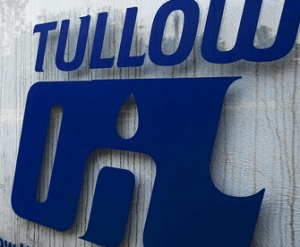 Tullow Oil shares fell following the re-ignition of a maritime boundary dispute between Ghana and western neighbor Ivory Coast.
Tullow Oil shares fell following the re-ignition of a maritime boundary dispute between Ghana and western neighbor Ivory Coast.
Shares in Tullow fell 30p, about 7.7 percent on concern the oil producer’s Tweneboa-Enyenra-Ntomme (TEN) development off the coast of Ghana could fall behind schedule.
Tullow Oil lost over £200 million ($308 million) of its market value on Monday, hit by concerns that a boundary dispute between Ivory Coast and Ghana could delay a project off the coast of West Africa, the Reuters reported.
Ivory Coast had asked the International Tribunal for the Law of the Sea (ITLOS) to order Ghana to halt all drilling in the area where the project is located.
ITLOS is expected to give a “full verdict” on the dispute late 2017, although a decision on “preliminary measures” should come by the end of April, Tullow was cited as saying by some reports. The announcement spiked fears that TEN would be affected by delays.
The government of Ivory Coast led by President Allasane Ouattara mapped out a new maritime border it is sharing with Ghana covering some of Ghana’s jubilee oilfields early November 2011.
It is believed that the disputed border holds about a billion-barrel discoveries.
Ghana was the first to find oil in the disputed C100 area along the Tano Basin and believes it had exclusive rights over that maritime boundary until Cote d’Ivoire also announced that it had struck oil in a block off its shore and adjacent Ghana’s Jubilee Field.
Meanwhile, Monday March 2, 2015, the government of Ghana issued a news release acknowledging receipt of “a notice from the International Tribunal for the Law of the Sea that its neighbor, Cote d’Ivoire, has applied for provisional measures with respect to the maritime boundary dispute between the two countries and before the Tribunal for a delimitation decision.”
According to the government, it believes that there are no grounds for the grant of the provisional measures of the kind sought by Cote d’Ivoire.
“Ghana would pursue its case thoroughly and vigorously,” it said.
The release noted that a Special Chamber of the Tribunal was constituted on January 12, 2015 to preside over the arbitration between the parties.
“This followed the decision by the Government of Ghana to submit the boundary dispute between our two countries to judicial decision. This was because negotiations had come to an end,” it added.
By Emmanuel K. Dogbevi
